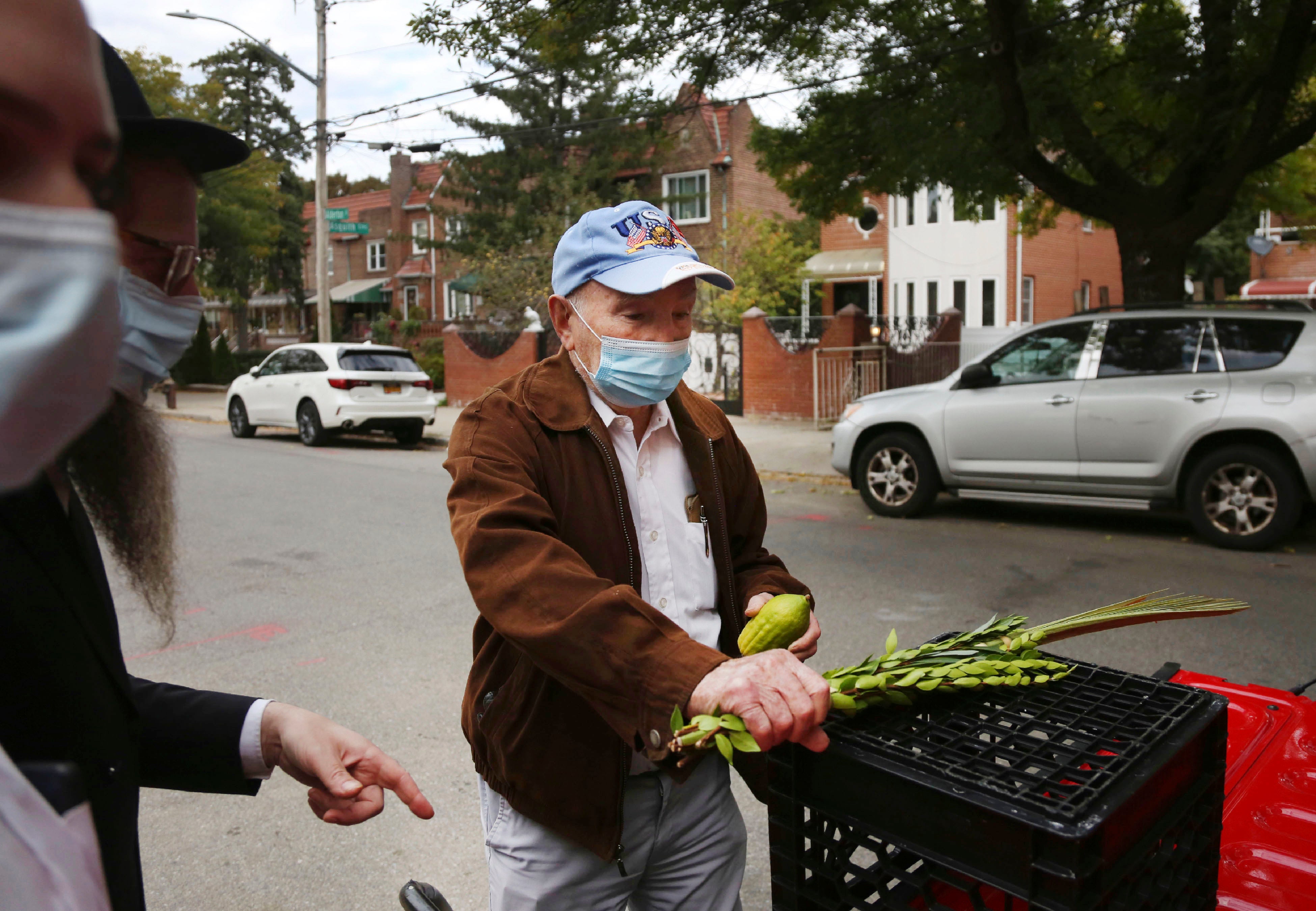House calls bring Jewish tradition of Sukkot to the isolated
In an effort to bring the traditions of Sukkot, the weeklong fall holiday commemorating God’s miraculous protection of the Jewish people in the desert, to the Jewish community of Queens, Rabbi Eli Blokh constructed a mobile sukkah in the back of a bright red truck

Your support helps us to tell the story
From reproductive rights to climate change to Big Tech, The Independent is on the ground when the story is developing. Whether it's investigating the financials of Elon Musk's pro-Trump PAC or producing our latest documentary, 'The A Word', which shines a light on the American women fighting for reproductive rights, we know how important it is to parse out the facts from the messaging.
At such a critical moment in US history, we need reporters on the ground. Your donation allows us to keep sending journalists to speak to both sides of the story.
The Independent is trusted by Americans across the entire political spectrum. And unlike many other quality news outlets, we choose not to lock Americans out of our reporting and analysis with paywalls. We believe quality journalism should be available to everyone, paid for by those who can afford it.
Your support makes all the difference.Sukkot, the weeklong Jewish fall holiday commemorating God’s miraculous protection of the Jewish people in the desert looks different this year.
Many vulnerable individuals remain isolated at home due to the coronavirus during a celebration meant to highlight unity in the sukkah, the temporary shelter where Sukkot is observed for seven days and nights.
To bring the joy and tradition to them, Rabbi Eli Blokh, director of the Chabad of Rego Park Jewish and Russian Community Center in New York’s Queens borough, mounted a sukkah of three walls with a roof of bamboo poles in a bright red pickup truck.
Then he, his two young sons, and two rabbinical students drove it through the community, making house calls to those who could not attend small in-person gatherings or construct a sukkah of their own.
One of them was Holocaust survivor Leon Sherman, who Blokh said “has an incredibly strong sense of faith and really cherishes the opportunity of being a part of the Jewish observance and tradition.”
“He’s been homebound until now,” the rabbi added, “and I thought of him first.”
As Sherman stood on the sidewalk outside his home wearing a mask and leather gloves, Blokh’s mobile sukkah pulled up playing niggunim, festive Hassidic tunes, from two loudspeakers affixed to the truck’s roof.
Sherman was physically unable to climb the small ladder into the sukkah, so the rabbi stood with him next to the truck as he took the lulav, a collection of palm, myrtle, and willow branches, and the etrog, a citrus fruit, reciting the blessings on the lulav together.
“He was really excited that we came and remembered him and that he counts,” Blokh said.
Blokh’s goal was to reach as many people as possible through the holiday ending Friday at sundown. After visiting Sherman, they hit two more homes that day.
“More than ever there’s a sense of isolation and also apprehension about the future, and I think it’s important, within the boundaries of social distancing and health precautions, to make sure that we continue reaching out to people,” Blokh said. “There’s something very visceral about being able to hold a lulav and etrog. … The physical bond between us still exists, it hasn’t gone into Zoom. We need each other.”
___
Associated Press religion coverage receives support from the Lilly Endowment through the Religion News Foundation. The AP is solely responsible for this content.